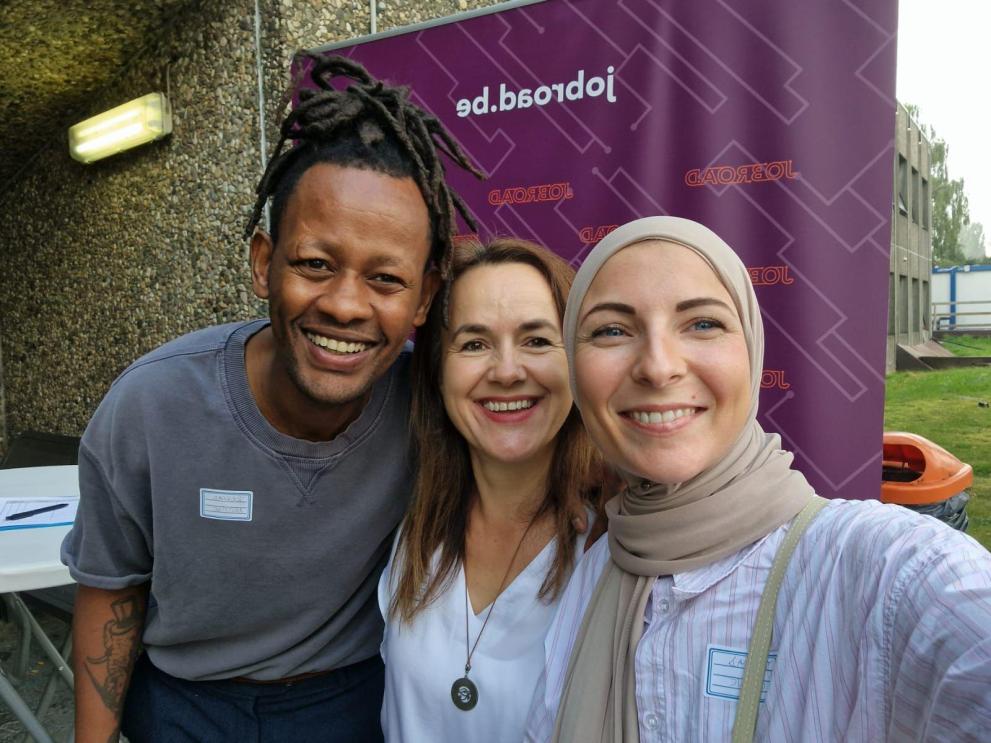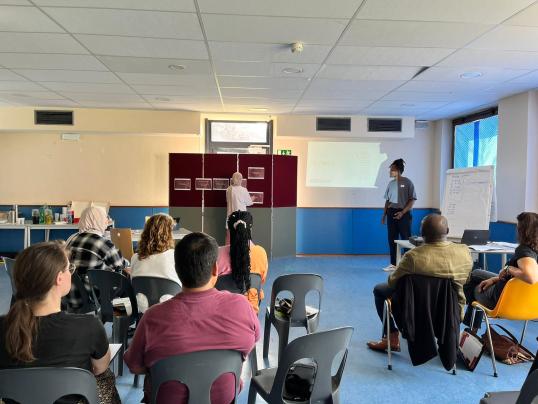
JobRoad is an international non-profit organisation based in Belgium that has been steering disadvantaged individuals towards suitable and sustainable employment since 2016. Thanks to its personalised approach, which focuses on offering hands-on coaching and support, the organisation helps those in need develop their skills and find employment opportunities.
One of JobRoad’s projects, “Refugees2Work,” stands out in particular: focused on empowering international protection applicants and ensuring their full and dignified participation into society, it helps reception centres’ residents take their first steps in the labour market. Funded by the European Commission’s Asylum Migration and Integration Fund (AMIF), “Refugees2Work” is run by JobRoad with the support of Fedasil, the Federal agency for the reception of asylum seekers in Belgium.
A new methodology to help refugees find work
The project offers 12 training workshops, preparing reception centres’ residents for the local job market; 12 matchmaking actions, guiding participants towards work; and 12 workshops for employers and civil society, raising awareness on 'Life as a refugee'. Moreover, it actively promotes an inclusive Human Resources policy within a large consortium of participating companies, that have committed to embrace their “blind hiring” methodology, allowing international protection applicants to apply without a CV. But it is JobRoad’s personalised approach that makes the “Refugees2Work” project truly stand out.
Take Aurélie Bakari, for instance, a young woman who enrolled in the September 2023 “Refugees2Work” edition, in Charleroi. During her screening, her case worker discovered that she has an aunt in Duffel who she regularly visits, and that she favoured looking for employment in this Flemish municipality. Given that the case worker had her own professional network in the region, she went to Duffel to explore job opportunities for Aurélie. She managed to secure an interview with Greenyard, a company that was looking to hire drivers. Aurélie took a test and obtained an impressive score of 14 out of 15 points, testifying to the talent present in reception centres. But there was one more challenge to overcome: the night shift. After exploring possible solutions, Aurélie’s case manager obtained a day service schedule for the young professional.
As in the case of Aurélie, JobRoad’s staff accompany all interviews in person, and remain in touch to mediate any issues that might arise, even after the hiring process is finalised. An approach, that has proven remarkably successful in ensuring long-term employment.
Bringing employers in the reception centres
A new workshop, developed by JobRoad in the frame of “Refugees2Work,” will be taking place in the reception centres themselves, bringing employers and beneficiaries of international protection closer together. As explained by the organisation’s staff, local employers have little to no knowledge of this target group. Thus, JobRoad has taken upon itself to act as their adviser on the recruitment of international protection applicants, helping them establish appropriate employment measures and contracts.
As explained by Sacha Herman, a recruiter working with JobRoad and Fedasil in Jumet, his company was looking for new and creative ways to address the ongoing talent scarcity. This is how they crossed paths with the JobRoad organisation, which helped the company train 10 professionals from reception centres through an intensive 5-month programme. Three candidates have already been hired by the company, which aspires to further expand this recruitment technique.
This unique approach, which has led to the formation of powerful local networks around every reception centre in the country, is key for activating this particular target group of professionals in the regular labour market. It is precisely this networking perspective that distinguishes the “Refugees2Work” project.
Details
- Publication date
- 29 April 2024
- Author
- Directorate-General for Migration and Home Affairs

